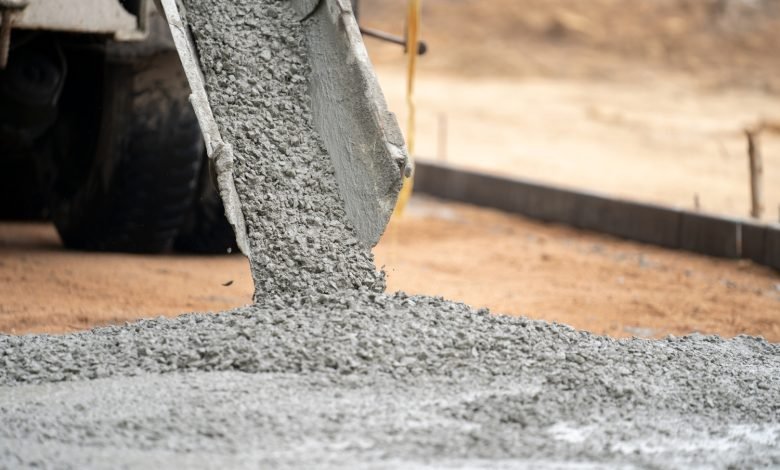
What Are The Various Types Of Ready Mix Concrete And Their Key Advantages?
While you are carrying out your construction project, concrete is regarded as one of the most important considerations. With the availability of about nine types of concrete in the market, it can be challenging to come across the right type for your job. Commonly available concrete options are site mix concrete, ready-mix concrete, precast concrete, concrete pavers, concrete blocks, etc.
But, in this guide, we will focus on discussing ready mix concrete. Not only will we have a close look at the different types of ready-mix concrete available in the market, but we will also explain their key advantages. Let’s dig into our detailed discussion to understand everything about this concrete option.
What Is Referred To As Ready Mix Concrete?
RMC is known to be a concrete option that is manufactured in a batch plant as per the specific mix designs. It is mainly delivered in one of two ways such as:
Volumetric Concrete Mixers
In this way, the delivery of the RMC occurs to your place in a dry site. These mixers let you mix the concrete on site.
In-Transit Mixers Or Barrel Truck
If you opt for your concrete to be delivered this way, it will arrive at your construction site in a plastic state.
So, how concrete is delivered to your site will depend on the particular concrete supplier you choose. This concrete option is known for its sustainability and durability. Whenever you utilise this to carry out your construction project, the result is more accurate and of high quality.
What Are The Various Types Of Ready Mixed Concrete?
There are mainly three types of this concrete option which you should have a good idea about. In this case, the determination of each type occurs by the specific mixture of ingredients. Let’s now have a look at its types:
- Central Mixed Concrete
- Transit Mixed Concrete
- Shrink Mixed Concrete
Central Mixed Concrete
Central mixed concrete is also referred to as central batching plant concrete. The mixing of this particular type of RMC is meticulously carried out before it is loaded into a truck mixer. During transit, the mixing drum of the truck generally acts as an agitator.
Transit Mixed Concrete
Another name of transit mixed concrete is dry-batched concrete. In this specific RMC type, all of the basic ingredients and water are mixed in the truck mixer. At the time of carrying out the initial loading of the ingredients, the mixer drum of the truck is rotated quickly at charging speed.
After that, there will be a slowing down of the rotation of the mixer drum, and ultimately, it comes back to a normal agitating speed. You will find the availability of transit mixed concrete in three variations which includes:
- Mixed in the yard
- Mixed in transit
- Mixed at job site
Shrink Mixed Concrete
It is another type of RMC that has been partially mixed in the original plant mixer. The remaining mixing work is carried out in the truck’s mountain drum during transit. In this case, you need to determine the amount of mixing required in transit. One of the best practices is to carry out tests that will help you find out the amount of mixing needed for the mountain drum mixer.
Key Advantages Of Ready Mixed Concrete
After learning about the different types of concrete, now it is essential to learn about the main advantages of RMC. Don’t worry; we will talk about these in the following section to help you to understand better:
- The quality of this ready mixed concrete is outstanding. This high and fine quality is achieved as the mixing plant uses consistent approaches and sophisticated equipment.
- Sophisticated equipment is utilised in this case, so the chances of human errors are eliminated. This concrete option is considered best because it reduces intensive labour dependency. And, less labour means that you will end up saving money.
- This specific concrete mix is explicitly used with high versatility.
- Whenever you go for this particular option, you will need much less space to store the raw materials at the construction site.
- During manufacturing of this RMC, there is strict control over the continual monitoring of the effective practices for testing materials and process parameters.
- This concrete option effectively solves the problem of batching and poor control on the input materials found in other mixing approaches.
- There is low consumption of diesel and petrol in this concrete option. As a result, both the noise and air pollution are reduced.
- Instead of cement bags, there is the utilisation of bulk concrete in this case. It helps save cement and significantly lowers the dust circulated in the process.
- By saving cement, you will be able to conserve resources and energy.
Wrapping Up
The list is very long whenever we talk about the advantages of ready mix concrete. Here, we have discussed some of the most important ones that will help you make a practical decision. After reading this blog post, we hope you are clear on the different RMC types and their advantages.
Are you looking forward to choosing a reliable ready mix concrete Essex supplier for your requirements? If yes, look no further than RMS Concrete. They are dedicated to solving your unique needs. Contact them today to discuss your requirements with them.




Great article on the different types of ready-mix concrete and their advantages! While high-quality concrete is essential for strong structures, the finishing also plays a crucial role in durability and aesthetics. That’s where gypsum plastering comes in as an excellent choice for interior walls.
Unlike traditional plastering methods, gypsum plaster offers a smooth, crack-resistant finish, dries quickly, and enhances thermal and sound insulation. It also eliminates the need for additional wall putty, reducing overall costs and labor time. Plus, its eco-friendly nature makes it a sustainable option for modern construction.
If you’re looking for a superior wall finishing solution that complements high-quality concrete structures, check out https://gemplast.in/ for expert gypsum plastering services.